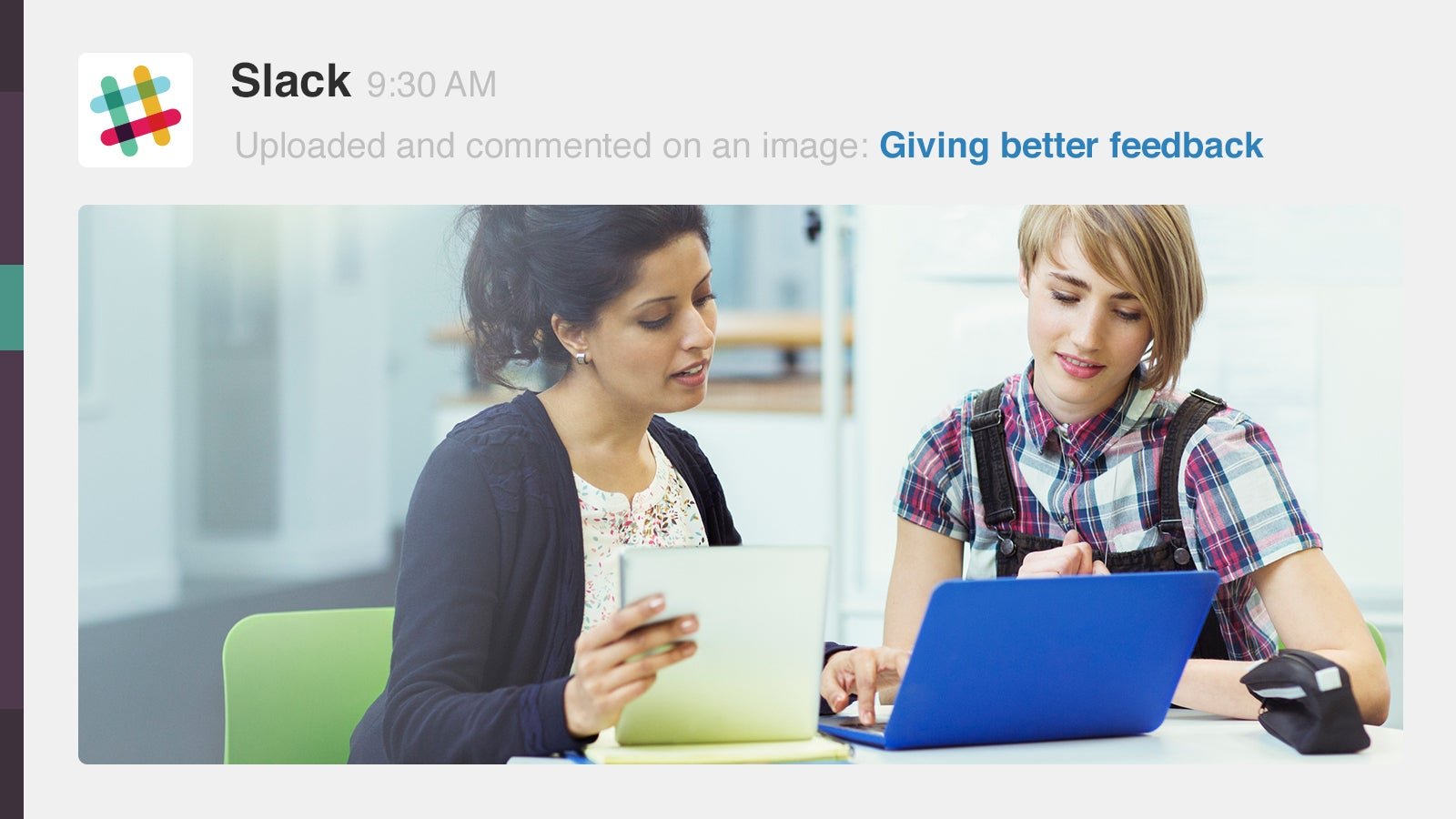The best way to give feedback? Personalize it
Feedback by itself shouldn’t be that scary. When we receive quality feedback from our teammates and managers, we learn. This helps us proactively adjust our behavior in the future, leading to better work.


Feedback by itself shouldn’t be that scary. When we receive quality feedback from our teammates and managers, we learn. This helps us proactively adjust our behavior in the future, leading to better work.
“If someone tells you that you ‘buried the lede’ by beginning with a stodgy research quote, you probably won’t make that choice again,” says Dr. Kristen Swanson, who, in her role as Director of Learning at Slack, is charged with teaching people how to improve their technical and interpersonal skills. “You’ll use that feedback to coach yourself more effectively each day as you work, which creates a very large cumulative effect over time.”
Most people tend to associate feedback, even the constructive kind, with the delivery of bad news. Swanson cautions that critical evaluation is really just one kind of feedback that ought to be balanced with another important form of feedback: appreciation.
When you express appreciation, you’re supporting someone’s behavior and encouraging them to do more of it. Many managers assume a well-meaning, “Good job!” will suffice, but researchers say that generic, vague expressions of praise or gratitude can be detrimental to young professionals’ growth. In the workforce, a recent study shows women often receive less feedback than men and a good amount of it is abstract, which has been proven to hold them back from future opportunities.
Being purposeful and precise in how you deliver appreciation is just as important as the way you handle critical feedback. Done right, it can be equally valuable in motivating a team member’s performance. In Swanson’s experience, the most effective positive feedback is:
Specific—The simplest way to keep feedback specific is to tie a person’s action to an outcome. Point out exactly what a person has done and why it matters.
Not personalized—Keep feedback at the workplace fair and performance based rather than personality based. Phrases like, “You’re a rockstar!” are problematic not because they’re vague and can actually reinforce social status or personality rather than someone’s work.
Timely— A person is much more likely to remember appreciation when it’s given in the moment. Recognizing achievements as they happen reinforces good behaviors and keep things moving in the right direction.
Noted and shared—If you’re a manager, write down feedback and share it with your team member in a mutually accessible place . This way the feedback feels permanent and official, and also acts as a diagnostic tool: it gives a fuller picture of a person’s achievements over the long term and provides insight into the kinds of opportunities where they will grow and excel.
Specific and sincere appreciation gives people a clear picture of where they’re adding value, helps them understand their strengths, and provides opportunity for improvement.
This piece is part of a series examining the contemporary workplace, originally written by the
Slack
editorial team. For more stories from Slack, visit their blog,
Several People are Typing
.
This article was produced by Slack and not by the Quartz editorial staff.